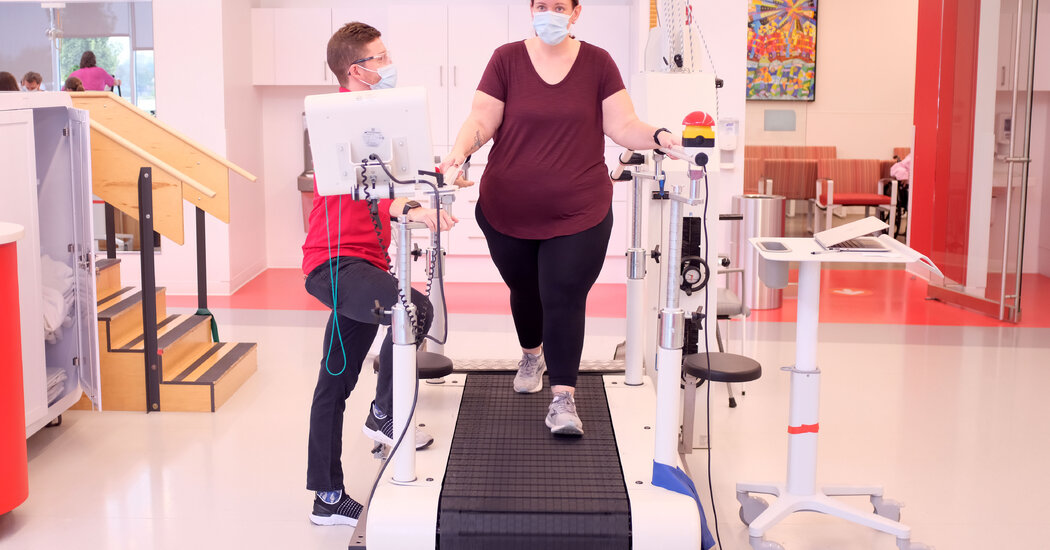AURORA, Ill. — There is sobering eence of Samantha Lewis’s struggle with long Co on her bathroom mirror.
Above the sink, she has posted a neon pink index card scrawled with nine steps (4. Wet brush 5. Toothpaste) reminding her how to brush and floss her teeth. It is one of many strategies Ms. Lewis, 34, has learned from “cognitive rehab,” an intensive therapy program for Co-19 survivors whose lives have been upended by problems like brain fog, memory lapses, dizziness and debilitating fatigue.
Nearly two years into the pandemic, advances have been made in treating Co itself, but long Co — a constellation of lingering health problems that some patients experience — remains little understood. Post-Co clinics around the country are trying different approaches to help patients desperate for answers, but there is little data on outcomes so far, and doctors say it is too soon to know what might work, and for which patients.
Over several months, The New York Times visited Ms. Lewis, interviewed her doctors, attended her therapy sessions and read her medical records. Before she was infected with the coronavirus in October 2020, experiencing a modest initial illness that did not require hospitalization, she was successfully juggling a demanding, detail-oriented job while raising a child with autism and attention deficit hyperactivity disorder. But this summer, she scored 25 on a 30-point assessment, placing her in a pre-dementia category called mild cognitive impairment.
“I can feel that things are off,” she told a neurologist at Northwestern Memorial Hospital’s Neuro Co-19 Clinic in Chicago who evaluated her and recommended cognitive rehab. “I approach a red light, my brain knows that it’s red, but it’s not reacting to the rest of my body to put my foot on the brake. Do you understand how terrifying that is?”



